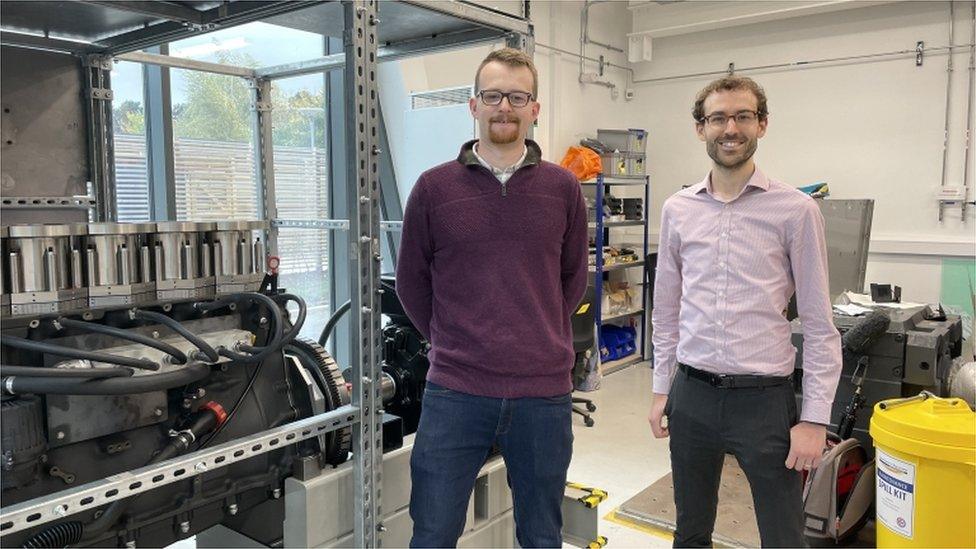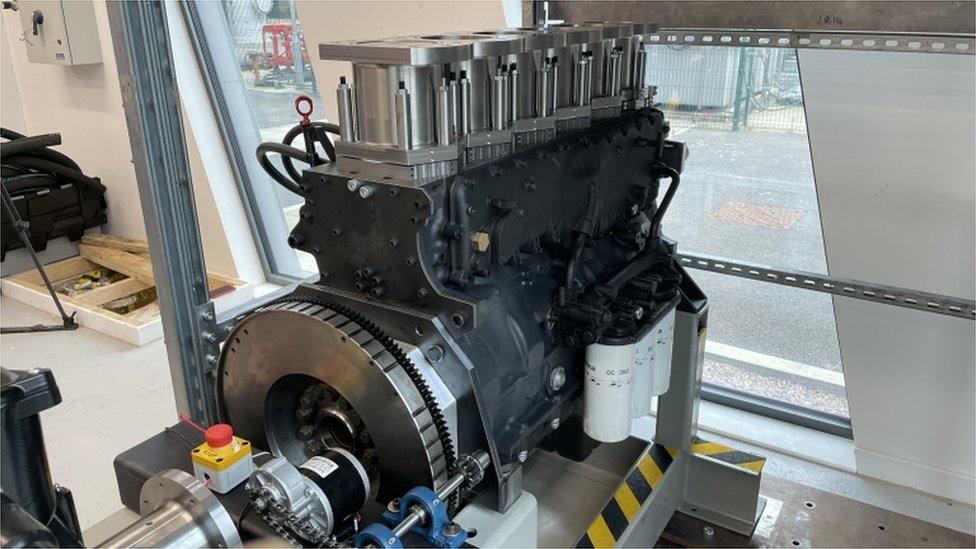Nottingham battery made from old Volvo truck engines shown at COP26
- Published

Mike Simpson (right), pictured with design engineer James Garvey, says the system is hugely exciting
An innovative energy storage battery, fed by repurposed Volvo truck engines, is being showcased at the COP26 climate conference.
Energy storage company Cheesecake, based at the University of Nottingham, has developed the technology.
The system uses compressed air and thermal storage to produce energy on demand.
Its makers say it will have a dramatically lower environmental impact than traditional lithium-ion batteries.
'Sustainable'
The company said that while many battery systems rely on the mining of rare or hazardous elements, this system uses readily-available materials like gravel to store electricity.

Repurposed truck engines and readily-available materials like gravel are key parts of the system
"The compressed air heats up and that heat is stored [as electricity]... within 20 tonnes of gravel," Mike Simpson, one of the company's co-founders, said.
"This is a really good, cheap and compact way of storing heat.
"The system draws on very well-established principles and it's a really sustainable approach.
"We are using hardware and skills that already exist but in a clean energy context.
"It's hugely exciting," he said.
Dr Andrew Naylor, CEO of Nottingham Technology Ventures, said: "We're excited by the potential of [this] technology to reduce the cost of energy storage as the world moves towards cleaner methods of energy production."

Follow BBC East Midlands on Facebook, external, Twitter, external, or Instagram, external. Send your story ideas to eastmidsnews@bbc.co.uk, external.
Related topics
- Published1 November 2021
